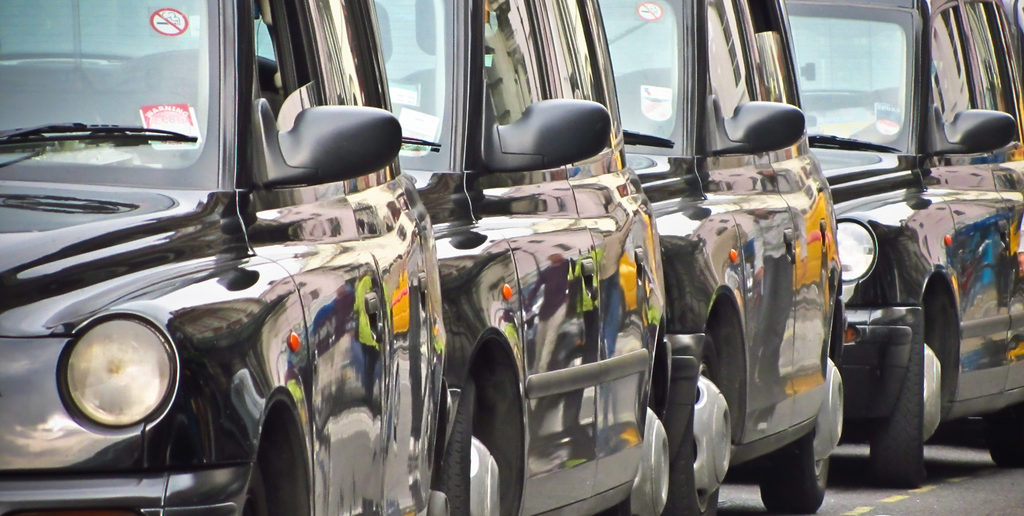Let me respond to the news of widespread strikes and numerous attempts to limit or ban taxi app services across Europe. The debate about taxi apps is really a debate about the wider sharing economy.
Let me respond to the news of widespread strikes and numerous attempts to limit or ban taxi app services across Europe.
Many people know how outraged I was by the reaction of authorities and drivers to the emergence of services like ‘Uber’ in Brussels, Berlin, Milan, Madrid and more cities across Europe. (there are plenty of European competitors and complements by the way, like: DJump, Taxipal, Taxify, Hailo, BlaBla and more). But it becoming clear that there’s a wider significance of this debate.
The debate about taxi apps is really a debate about the wider sharing economy. That debate forces us to think about the disruptive effects of digital technology and the need for entrepreneurs in our society. And that’s what the Taxi protests are really about.
It is right that we feel sympathy for people who face big changes in their lives. Drivers need to feed their families and plan for the future – but how can they if that future includes not only price competition from Uber, but also driverless cars? It can clearly be a tough profession to work in. Many are also locked into an expensive licensing system, where the license effectively forms part of their pension. So I don’t think it helps to be dismissive of real concerns that cab drivers have about new forms of competition. But we cannot run away from these debates either.
Whether it is about cabs, accommodation, music, flights, the news or whatever. The fact is that digital technology is changing many aspects of our lives. We cannot address these challenges by ignoring them, by going on strike, or by trying to ban these innovations out of existence.
That is why a strike won’t work: rather than “downing tools” what we need is a real dialogue where we talk about these disruptions caused by technology.
We need to see that even if the change requires adjustments, it also is a sign of much needed entrepreneurs, and it is a boost to all of us as consumers. And all of these perspectives need to be accommodated.
I believe it is a fundamental truth that Europe needs more entrepreneurs: people who will shake and wake us and create jobs and growth in the process.
We also need services that are designed around consumers. The old way of creating services and regulations around producers doesn’t work anymore. They must have a voice, but if you design systems around producers it means more rules and laws (that people say they don’t want) and those laws become quickly out of date, and privilege the groups that were the best political lobbyists when the law was written.
That is old-fashioned compared to a system that helps all of us as consumers, and encourages entrepreneurs. We need both those elements in our economy; otherwise we will be outpaced to our East and our West. We’ll be known as the place that used to be the future, but instead has become the world’s tourism playground and nursing home. I don’t want Europe to have that future. That is not the world I imagine by grandchildren growing up in.
So that is why I have been vocal about taxi apps. Because the disruptive force of technology is a good thing overall. It eliminates some jobs and it changes others. But it improves most jobs and it creates new ones as well.
If we don’t use digital technology then millions of jobs will simply move elsewhere and Europeans will get angry that they are denied the conveniences that people in Asia and Australia and America and Africa take for granted. Many of the people making those innovations will come from America and other places, but just as many will be home-grown innovators that the rest of the world is jealous of. All of it will contribute to our prosperity.
People in the sharing economy like drivers, accommodation hosts, equipment owners and artisans – these people all need to pay their taxes and play by the rules. And it’s the job of national and local authorities to make sure that happens.
But the rest of us cannot hide in a cave.
Taxis can take advantage of these new innovations in ways consumers like – they can arrive more quickly, they could serve big events better, there could be more of them, their working hours could be more flexible and suited to driver needs – and apps can help achieve that.
More generally, the job of the law is not to lie to you and tell you that everything will always be comfortable or that tomorrow will be the same as today. It won’t. Not only that, it will be worse for you and your children if we pretend we don’t have to change. If we don’t think together about how to benefit from these changes and these new technologies, we will all suffer.
So it’s time to sit around a table and come up with reasonable accommodations of innovation. We cannot criminalise a whole class of citizens, or drive tourists away from places that need money, in order to protect a few industries that think they can be exempt from the digital revolution. It’s not fair on everyone else, and it’s not realistic.
If I have learnt anything from the recent European elections it is that we get nowhere in Europe by running away from hard truths. It’s time to face facts: digital innovations like taxi apps are here to stay. We need to work with them not against them.




